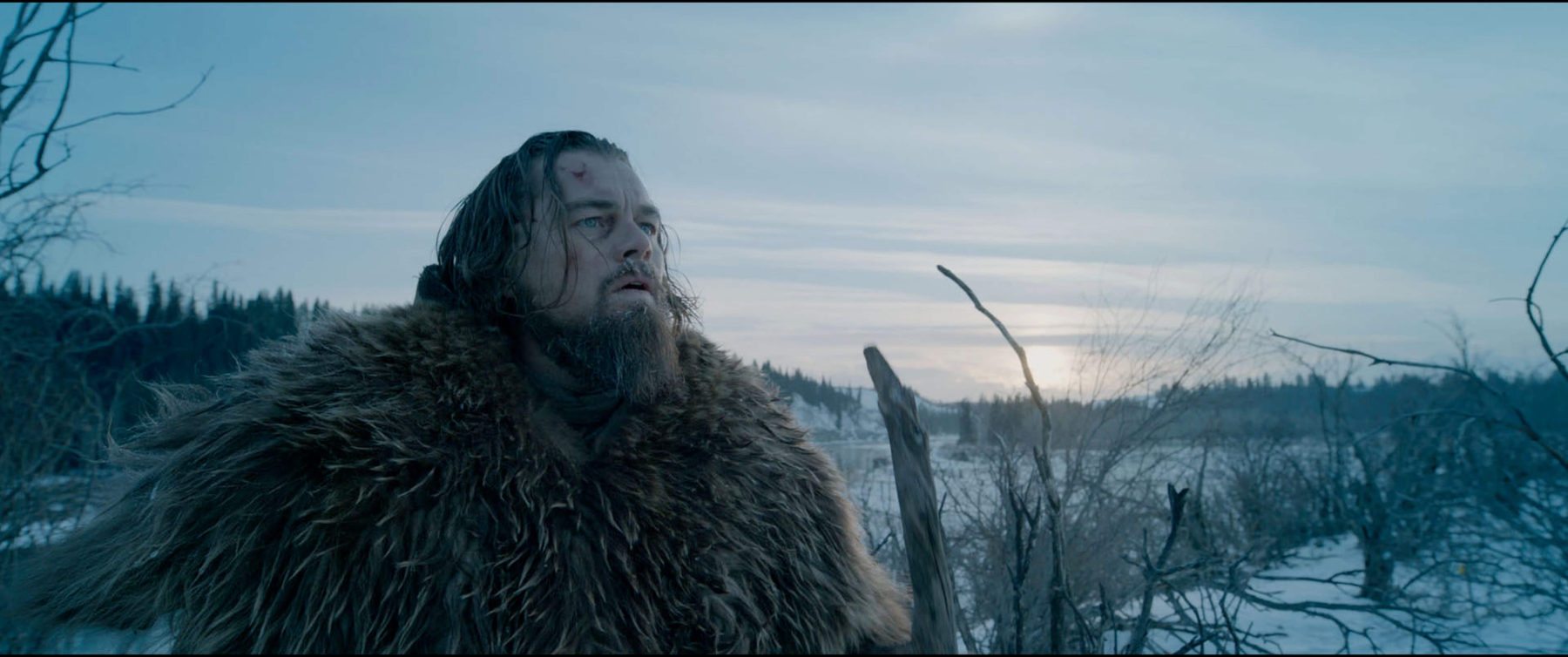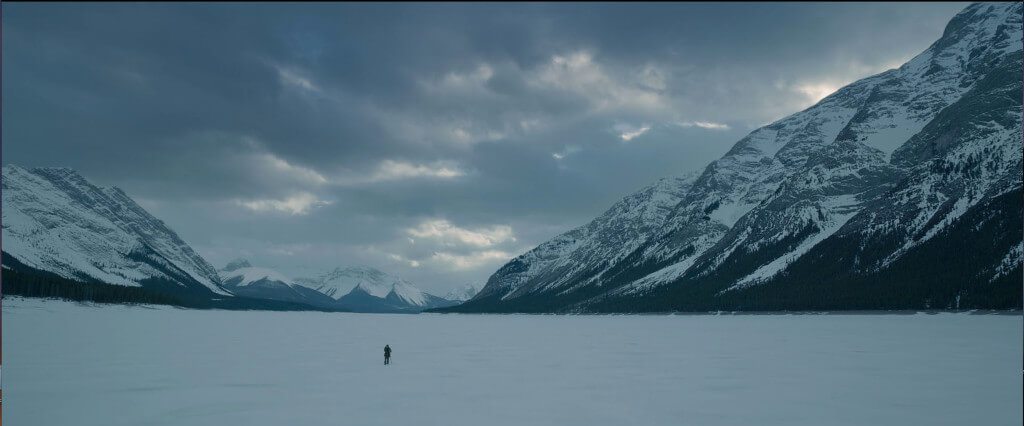The Revenant
Director: Alejandro González Iñárritu
Cast: Leonardo DiCaprio, Tom Hardy, Domhnall Gleeson, Will Poulter
Running time: 156 minutes
Country: US
[dropcap]A[/dropcap]lejandro González Iñárritu won last year’s Academy Award for Best Director for Birdman, a scintillating critique of celebrity culture and the fame game. The 1820’s American wilderness of his next film, The Revenant, is far removed from the glitz and the glamour of Birdman’s Broadway. Where Birdman was lively and garrulous, The Revenant is measured and is becoming notorious for its sparse dialogue.
Hugh Glass (Leonardo DiCaprio) is part of a team of frontiersmen and fur trappers which includes Captain Andrew Henry (Domhnall Gleeson, who has had an astonishing year) and the cynical John Fitzgerald (Tom Hardy). After having been viciously mauled by a bear, a broken Glass is deserted by both Fitzgerald and a clueless Jim Bridger (Will Poulter). The word ‘revenant’ means “a person who has supposedly returned from the dead.” Glass is the revenant, and Fitzgerald is the unlucky target of his revenge.
The Revenant has been described as an examination of the pitiless relationship between man and nature. This is true enough, but the artistic success of the film depends more on the intimate relationship between the camera and its object – in this case, the snowy, biting climes of Canada and Argentina (where filming took place). The Academy Award for Best Cinematography has, for the last two years, gone to Emmanuel Lubezki for his work on Gravity and Birdman, and I find it hard to imagine him not securing the hat-trick for The Revenant. Much of the film consists of DiCaprio crawling for safety while groaning with pain; the camera is therefore under a huge amount of pressure to make this interesting. It is a virtuoso visual performance, and I yearn to see what the partnership of Iñárritu and Lubezki can accomplish in the future.
Much of the film consists of DiCaprio crawling for safety while groaning with pain; the camera is therefore under a huge amount of pressure to make this interesting
Any film that consciously aspires to the epithet of “masterpiece” (and every shot of this film proves that it does) is inevitably tempted by overreach. The middle section could do with a little tightening; beautiful vistas alone cannot hold our concentration for 156 minutes. Films that lack dialogue often resort to a surplus of nostalgic flashback scenes. To its credit, The Revenant is relatively careful in its use of these, but unmistakeable whispers of spiritual vapidity (which infect so many films that have the natural world as their protagonist) subtract from its great ambition to present a stark view of the human experience.
Now, for the big question: I do not know whether or not DiCaprio will finally win the Best Actor award. I have no doubt that the conditions were awful, and am impressed that the vegetarian DiCaprio agreed to eat raw bison liver for the role – footage of his initial reaction has in fact been kept in the film. The mauling scene itself is an astonishing visual achievement and is perhaps the most extraordinarily arresting scene of a film I have ever seen. But the role doesn’t exactly show much of DiCaprio’s range; there is a lot of grunting, writhing, and crawling. The Wolf of Wall Street strikes me as being much more of an Oscar-winning performance. If Iñárritu, however, does not win Best Director again, then the Academy Award voters deserve to be mauled by bears themselves. In an age where we pretend to have complete mastery over nature, this film is a brutal reminder of who is really in control. The Revenant manages to be simultaneously brutal and beautiful, and Iñárritu may one day be numbered among the greats.


Comments (1)